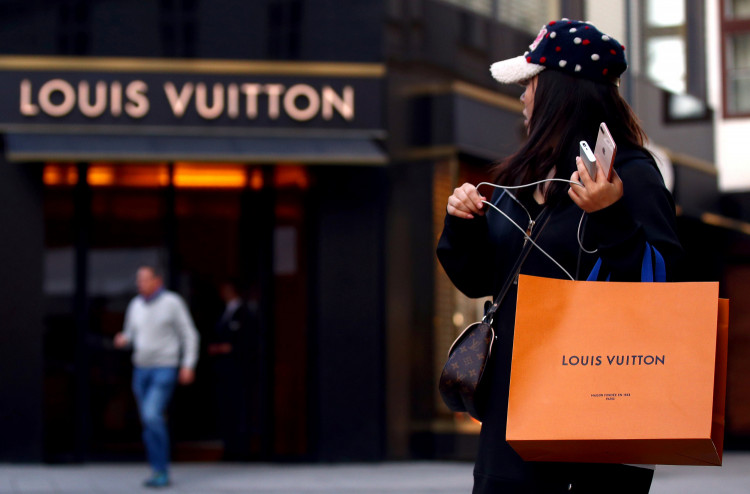In a recent earnings release, LVMH showcased impressive financial results, which may suggest a potential recovery in the luxury goods sector. Despite the positive performance, it's not clear if this marks an end to the challenges faced by the industry as a whole.
LVMH, a leading luxury brand, reported a better-than-expected organic revenue growth of 10% in the fourth quarter, defying analysts' predictions of a slowdown. The company set new annual records for revenue and net profit in 2023, surpassing its achievements in 2022.
The fashion and leather goods segment, the largest contributor to income and profit, displayed solid performance. Additionally, high-end retail operations, including Sephora, saw strong growth in the fourth quarter, and the wine and spirits sector experienced a revival.
LVMH plans to propose a dividend of 13 euros per share at the shareholder meeting in April, an increase from the previous year's 12 euros per share. The favorable earnings report alleviated some concerns about demand for luxury brands. However, LVMH's dominant scale and financial resources do not fully represent the state of the entire industry, especially with Kering Group, the parent company of Gucci, showing weaker performance.
LVMH's stock surged by 12% on Friday, reaching a market value of 382 billion euros, although it remains 16% below the all-time high in April 2023. The significant gain in LVMH's stock helped push the French CAC40 index up by more than 2%.
For the fourth quarter, the group's organic revenue grew by 10% year-over-year, exceeding analysts' expectations of 8%. This growth was mainly driven by a stronger-than-anticipated recovery in the wine and spirits business and high demand at Sephora.
In 2023, LVMH's sales increased by 9%, aligning with analyst forecasts but falling short of the 23% growth in 2022. The group's profit rose by 8% to 15.2 billion euros, with the operating margin remaining stable at 26.5%.
The luxury retail business, including cosmetic brand Sephora, was particularly notable, with organic revenue and operating profit reaching record highs, indicating that consumer demand for skincare and makeup products has withstood inflationary pressures.
While the fashion and leather goods sector's quarterly organic revenue growth of 9% was below expectations, its annual growth of 14% and record revenue highlight its strength.
Bernard Arnault, LVMH's CEO, announced the nomination of his sons, Alexandre Arnault and Frédéric Arnault, to the board of directors on January 25, signaling a move to secure family control and a sign of LVMH's resurgence.
Looking ahead, Arnault expressed confidence in 2024, citing the brand's exceptional appeal even amid economic and political tensions, and anticipated continued growth and market share expansion for the group.
The luxury sector has cooled off after two years of rapid growth following the COVID-19 outbreak, particularly among younger consumers and less affluent groups most affected by high inflation.
While LVMH's performance brings positive news to the luxury consumption field, it doesn't fully reflect the state of the entire industry. LVMH remains far ahead in scale and financial power.
The company noted accelerated demand in the U.S. market in the fourth quarter, not just for Sephora but across other segments, suggesting that American consumers, especially the affluent middle class, may have overcome the worst period.
Previously, Richemont Group, the parent company of Cartier, reported better-than-expected performance in the last quarter of the year, with jewelry brands Cartier and Van Cleef & Arpels offsetting a slowdown in the watch business. Hermès sales also remained resilient.
However, other luxury companies are still struggling. Kering Group, in particular, has shown weaker performance as it attempts to revitalize its Gucci and smaller Balenciaga brands. Prada also reported strong results, but its sales growth is slowing.
Moreover, the economic rebound in Europe and America in the last quarter may be temporary, primarily driven by holiday spending.
Barclays analysts predict that the overall sales growth for luxury goods companies will be 5% in 2023, lower than the 9% growth rate in 2022 and far below the double-digit percentage growth in 2020 and 2021.





